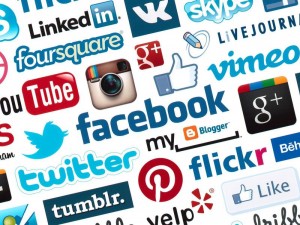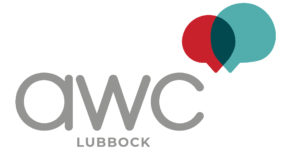By: Julie Barnett, assistant director for Texas Tech Libraries Office of Communications & Marketing
 (Image Source)
(Image Source)
Facebook, Twitter, Instagram, Pinterest…navigating the balance between personal and professional use can be tricky. As communications professionals, we see the value in promoting our events, services, news and products in a very quick, effective and no-cost manner. But as women, we see connections with friends, old and new; we more easily communicate with family near and far; sometimes we see the unfolding drama of those who have no shame in publicly airing their laundry; and we see the advantages of being instantly in the know.
So when we multi-taskers are at work monitoring the official site of our business or organization, we often pop over to our personal page. And many times we cross promote our professional news/sales/announcements on our personal page as well. The line between the two different worlds can be very fine, indeed.
The pervasiveness of social media and issues that often arise between the personal and professional has led to two identical Texas House and Senate bills recently being filed – House Bill 318 introduced by Democratic Rep. Helen Giddings and Senate Bill 118 by Democratic Sen. Juan “Chuy” Hinojosa. According to the Texas Tribune, HB 318 would “prohibit employers from requiring or requesting access to personal accounts of employees or job applicants through electronic communications devices” including personal cell phones, computers and social media accounts such as Facebook or Twitter. The bill would protect personal accounts of employees, but it would not apply to devices owned by a company that the employee uses to conduct business.
The measures largely stem from concerns about privacy and safety for Texans who spend an increasingly large portion of their time online. Similar bills have been proposed in Texas and passed in other states that protect students’ social media accounts by restricting or limiting employers and academic institutions seeking social media account access.
So what does it all mean for those of us who operate in a world where more and more of the newly created positions in communications today largely – and sometimes solely – involve social media? I think it means creating clearly defined policies and boundaries within our organizations. And for me at least, it means thinking twice about what I post on my personal page.
I’m no lawyer, but it seems that HB 318 would take immediate effect once voted on if it receives a two-thirds majority in each house. If it passes but doesn’t get that majority, it would take effect Sept. 1, 2013. It will be interesting to see the outcome of these particular bills, both currently in committee, as well as the others that are sure to follow as the law strives to keep up with the rapidly evolving and expanding world of social media.
